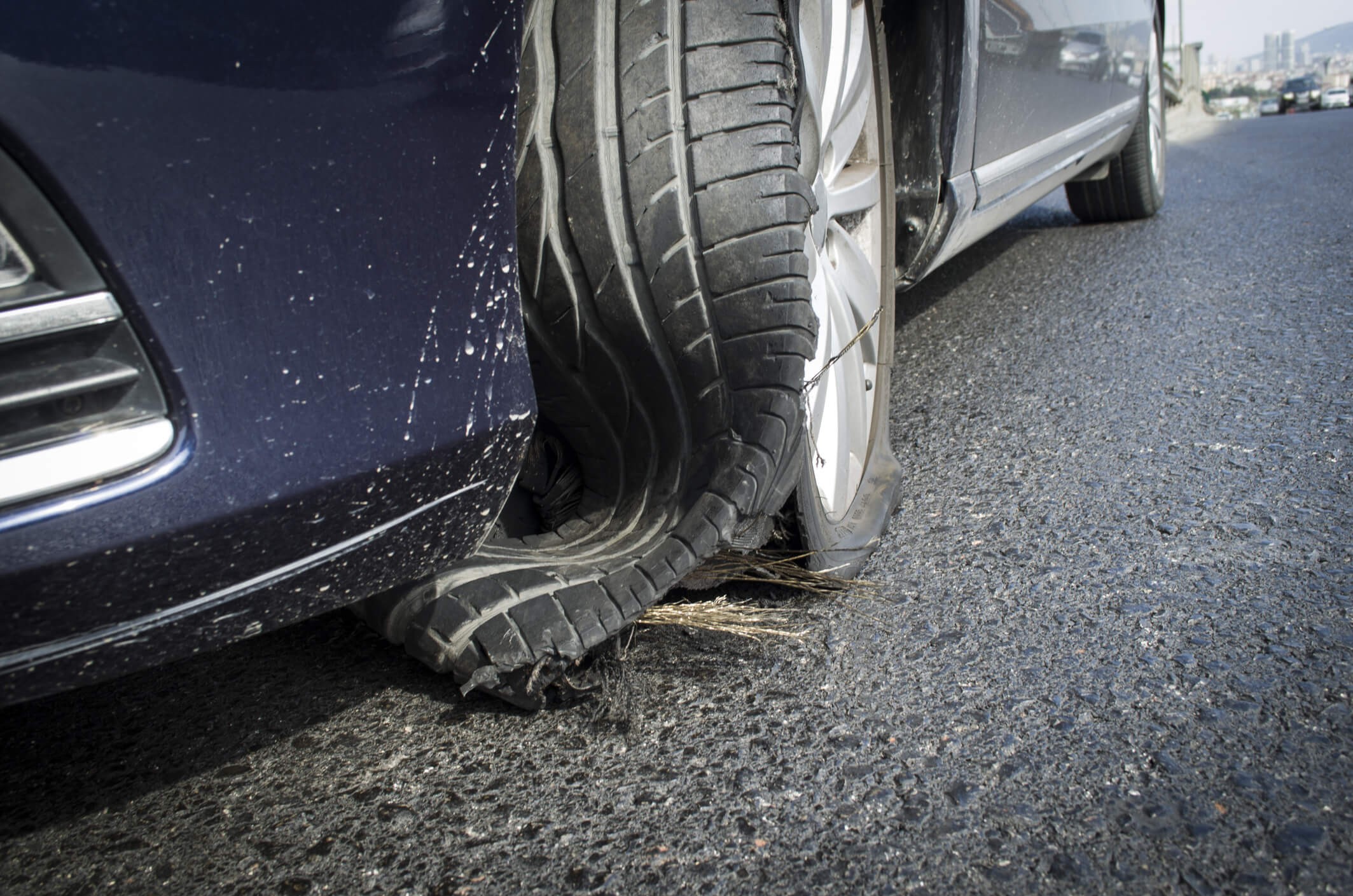What Happens in a Tire Blowout Accident?
You’ve probably seen the remnants of a busted tire somewhere on the highway. If you’re lucky, you’ve never been in the vehicle when a tire has blown. Tire blowouts are violent and abrupt and can lead to loss of driver control and deadly accidents.

Common Causes of Tire Blowout Accidents
Often, tire blowout accidents are preventable occurrences. However, there are a handful of common explanations for a sudden truck tire blowout.
- Impact Damage. If you run over a sharp or bulky object, the impact could puncture your tire. A blowout from impact damage could happen instantly, or it may happen later in your drive as the tire’s integrity goes down.
- Old, Worn-Out Tires. The rubber becomes worn and thin due to normal wear and tear over time, and these more delicate areas are more prone to blowouts from sudden changes in temperature or abrupt impact.
- Small Punctures. Running over small, sharp objects may seem like an easy issue to solve, but tiny punctures can lead to big problems. When driving at faster speeds, small holes can cause pressure imbalances that increase the likelihood of a blowout.
- Overloaded Vehicles. When a vehicle holds more than the recommended weight capacity, tires are under extra pressure, which causes blowouts. Semi-truck tire blowouts can cause additional damage when overloaded.
- Potholes. Road hazards like potholes often have jagged edges and create uneven surfaces that cause tire damage.
What Happens During a Tire Blowout?
When a tire blows, you may experience sudden deceleration as the wheel can’t roll the same way it would with an intact tire. Drivers also usually notice the vehicle being yanked or pulled to one side, depending on which tire has blown out. Blowouts also frequently make the driver lose control of the car, leading to an accident while attempting to steer the vehicle to safety.
What Does an Insurance Company Cover in a Tire Blowout Accident?
In the event of a tire blowout, your insurance company may cover several services to ease or even eliminate the costs associated with the accident. Some typical bills that insurance companies usually handle are:
- Towing Services Most insurance companies will take care of the cost of towing your damaged vehicle to a repair shop for a new tire.
- Damage to Other Parties’ Vehicles. If your tire blowout causes a collision with another vehicle, your insurance should cover any damage caused to the other party.
- Injuries to Other Parties. If your tire blowout causes physical damage to other individuals, your insurance will typically pay for their medical services.
- Tire Blowout Damage to Your Car. Repairs for a tire blowout can range from a new tire to structural repairs. If you have comprehensive coverage, your insurance should pay for most or all repairs.
Decreasing Your Risk of Tire Blowout
Following these guidelines should limit your likelihood of experiencing a tire blowout accident.
- Replace and rotate your tires. Having your tires serviced regularly will allow you to catch flaws that could break down the integrity of your tires.
- Obey road laws and limits. Lowering your speed through unknown territory and being mindful of construction zones and road hazards can help you avoid unexpected tire damage.
- Don’t overload your vehicle. You can probably find the weight limit for your car in your owner’s manual or by reaching out to the manufacturer.
Get in Touch With a Lawyer
If you’ve experienced a tire blowout and are now facing complex insurance claims or repairs and medical fees, you may want to seek assistance from an attorney. Whether you’re dealing with painful injuries or simply want to cover all your bases, the personal injury lawyers at Mulvihill Law Firm PLLC are here to help.
Call Us Now!
Contact our team by phone at 425-368-3455 or fill out our contact form here to get started. The Mulvihill Law Firm PLLC has experience with personal injury cases and accidents. Give us a call to get started on your insurance claims today!
Related Articles
Washington State Car Seat Laws
My Lawyer is Not Fighting For Me
Car Crash Meaning
How often does a fatal crash occur in minutes
